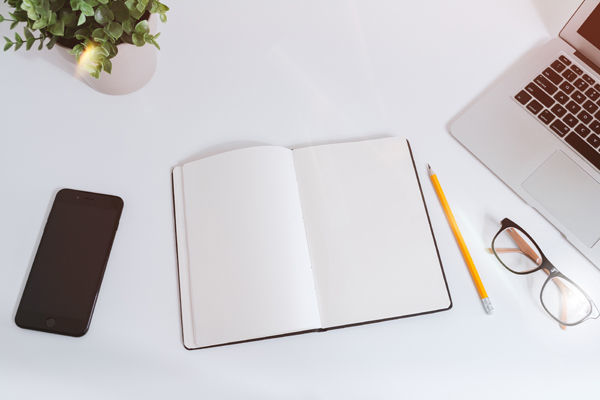What,Writing,the,Bad,Science,Column,Have,Taught,Me,人人都恨伪科学
科学是个神圣的词汇,但不知何时,打着“科学”的旗号却不行科学之事的乌合之众将科学的“圣殿”变成了伪科学的“江湖”:江湖郎中招摇撞骗、编造科学谎言;医药公司对临床试验结果报喜不报忧;媒体记者断章取义,误导大众;政客们为推行政策故意歪曲科学证据;就连货真价实的科学家都常常在科学实践中抛弃科学的原则与方法……是时候了,所有心有良知、头脑清醒、学识渊博的人是时候行动起来了,还大众以真相,树科学之威严。
I’ve got to go and finish a book: I’ll be back in six months, but in case it kills me, here’s what I’ve learned in eight years of writing this column.
First, alternative therapists2) don’t kill many people, but they do make a great teaching tool for the basics of evidence-based medicine3), because their efforts to distort science are so extreme. When they pervert the activities of people who should know better—medicines regulators, or universities—it throws sharp relief4) onto the role of science and evidence in culture. Characters from this community who wonder why people keep writing about them should look at their libel5) cases and their awesomely bad behaviour under fire.
Next: the real story of how the world works is much weirder than anything a quack can make up. The placebo effect6) is maddening, the nocebo effect7) more so, but the research on how we make decisions, and are misled by heuristics8) and mental shortcuts, is the wildest of all. Knowing about these belief-hacks gives you thrills, and power.
Pharmaceutical companies can behave dismally. Most important, they still won’t publish all the results of all the clinical trials conducted on humans. This is indefensible, and because we tolerate it, we don’t know the true effect sizes of the medicines that we give. This absurd situation mocks the whole of medicine: we need legislation to fix it, and popular movements to drive that. I’ll join yours.
Journalists can mislead the public about the answers of evidence-based medicine, which is bad. But they also mislead us on the methods and techniques. We live in a new era of doctors and patients—at our best—making decisions together. For that collaboration to work, everyone needs to understand how we know if something is good for us, or bad for us. The basics of evidence-based medicine, of trials, meta-analyses9), cohort studies10) and the like should be taught in schools and waiting rooms. It’s interesting, but it’s also life and death: people care about it.
Politicians misuse evidence, and distort it to shameful degrees. But more than that, there are endless cases where we could do randomised trials on policies—old and new—to find out if they achieve the outcomes they’re aiming for. There is no honourable excuse for failing to use the fairest tests we can design.
Real scientists can behave as badly as anyone else. Science isn’t about authority, or white coats, it’s about following a method. That method is built on core principles: precision and transparency; being clear about your methods; being honest about your results; and drawing a clear line between the results, on the one hand, and your judgment calls about how those results support a hypothesis. Anyone blurring these lines is iffy11).
Last, nerds are more powerful than we know. Changing mainstream media will be hard, but you can help create parallel options. More academics should blog, post videos, post audio, post lectures, offer articles and more. You’ll enjoy it: I’ve had threats and blackmail, abuse, smears12) and formal complaints with forged documentation.
But it’s worth it, for one simple reason: pulling bad science apart13) is the best teaching gimmick I know for explaining how good science works. I’m not a policeman, and I’ve never set out to produce a long list of what’s right and what’s wrong. For me, things have to be interestingly wrong, and the methods are all that matter.
我得去写一本书,六个月后回来,但此去弄不好会因此书小命不保,为了以防万一,这里先把本人八年来为本专栏(编注:指“伪科学专栏”)撰稿的心得写下来。
首先,另类治疗师把人治死的情况并不多,但他们的确提供了一个不可多得的素材,可以用来讲解循证医学的基础知识,因为他们不遗余力地歪曲科学,已经到了无以复加的地步。对于医药监管部门或大学里那些应该比他们更有头脑的人的活动,他们大肆歪曲,而这清晰地凸显出科学与证据在文化中的重要性。这个圈子里的有些人对于人们为什么老是拿他们做文章觉得不可思议,这些人应该好好审视一下自己所受到的种种“诽谤”,同时也好好审视一下自己那遭人炮轰的恶劣行为。
其次,世界运转的真实情形远比招摇撞骗的江湖郎中编出来的神话离奇得多。安慰剂效应令人发狂,反安慰剂效应则有过之而无不及,而最最令人疯狂的还要数这项研究——研究我们如何作决定,以及如何被启发式的解决问题之法和思维捷径所误导。对这帮信念黑客们略知一二,你会毛骨悚然,但同时也会充满力量。
制药公司的行为有可能是见不得人的。最要紧的一点是,他们至今仍不愿意公布在人体上进行的所有临床试验的全部结果。这是站不住脚的,而由于我们容忍了这样的事,我们根本就无从知道所有药物的实际效果有多大。这一荒谬的情形对整个医药界都是一个嘲讽:我们需要立法来加以解决,同时需要民众运动来加以推动。算上我一个。
在循证医学这个问题上,记者会误导大众,这一点很糟糕。但不仅如此,他们还会在方法和技术方面误导我们。从最理想的状态来说,我们生活在医患双方共同决策的新时代。要想实现这种合作,大家就需要了解如何鉴别某样东西于我们是有利还是有害。循证医学、试验、荟萃分析、群组研究等诸如此类的基础知识,学校里应该教,候诊室里也应该告知。这些知识很有意思,不过同时,其也关乎生死:人们不会不关心。
政客们往往会滥用证据,而且会将证据恣意歪曲到可耻的程度。不仅如此,对于各种政策,新的也好旧的也罢,有无穷无尽的案例可供我们进行随机试验,看它们能否获得预期的结果。而要拒绝使用我们所能设计的最公平的测试,则毫无体面的借口可言。
就算是货真价实的科学家,行起事来也有可能跟其他人一样差劲。科学讲究的不是权威,也不是白大褂,而是遵循一种方法。这一方法是建立在以下核心原则之上的:精确性和透明性;清楚地了解你所采用的方法;如实相告你所获得的结果;结果是一码事,你个人认为这些结果在多大程度上支持某一假说是另一方面,两者之间要界线分明。凡是混淆这些界线的人都是有问题的。
最后,书呆子们比我们所以为的要强大。改变主流媒体会很困难,但你可以帮着创建与其并行的其他选择。更多的学者应该写博客,上传视频、音频、讲稿,发文章和其他东西。你会尝到其中的乐趣:我就曾受到过威胁、敲诈、辱骂、诽谤,还有人以伪造文件罪对我提出过正式的控告。
但这样做很值得,原因只有一个,而且很简单:就我所知,批评伪科学是解释科学运作方式的最佳教学策略。我不是警察,也从未打算开列一份长长的对错清单。在我看来,错得有趣的事情,究其原因,都是错在方法上。
1.Ben Goldacre:本·戈尔达克里(1972~),英国科学作家、医生、精神病专家。自2003年以来,他每周在《卫报》(The Guardian)为“伪科学”(Bad Science)专栏撰写文章。2008年,作者出版了与专栏同名的《伪科学》(Bad Science)一书。
2.alternative therapist:另类治疗师,指传统西医以外的治疗师。
3.evidence-based medicine:循证医学,指遵循科学证据的医学,其核心思想是结合临床证据、个人经验与患者的实际状况和意愿三者来作出医疗决策。
4.relief [rɪˈliːf] n. 对比鲜明,轮廓分明
5.libel [ˈlaɪbl] n. 诽谤
6.placebo effect:安慰剂效应,指在病人不知情的情况下给其施以无效的治疗,但病人因为相信治疗有效,从而使病患症状得到舒缓的现象。
7.nocebo effect:反安慰剂效应,指病人尽管接受的是有效的治疗,但由于病人不相信该治疗有效,导致自身病情恶化的现象。
8.heuristics [hjuˈrɪstɪks] n. 启发法,指依据经验而获得探索问题、解决方法的技术手段。
9.meta-analysis:荟萃分析,是对针对相同问题、采用相同方法而得出的不同研究结果进行收集、合并,然后进行统计分析的方法。
10.cohort study:群组研究,是设立两个对照群组,用于检验某种危险因子与特定疾病或现象之间是否有关的方法。
11.iffy [ˈɪfi] adj. 可疑的,有问题的
12.smear [smɪə(r)] n. 诽谤
13.pull apart:指出错误,批评
推荐访问: 伪科学 人人都 Bad Writing Science





